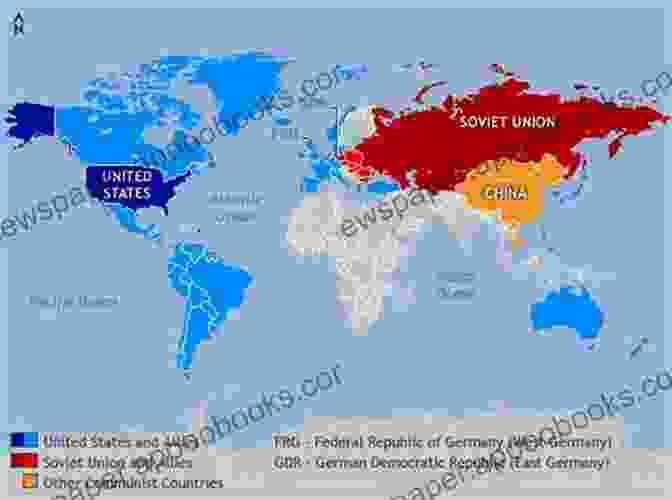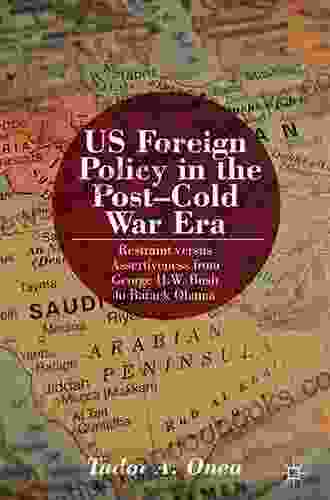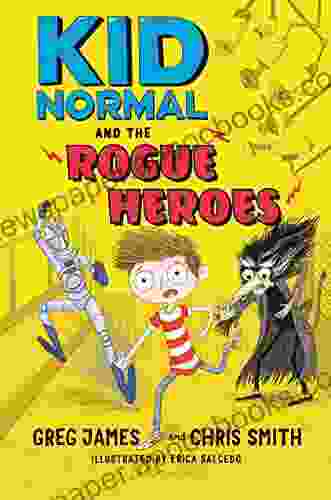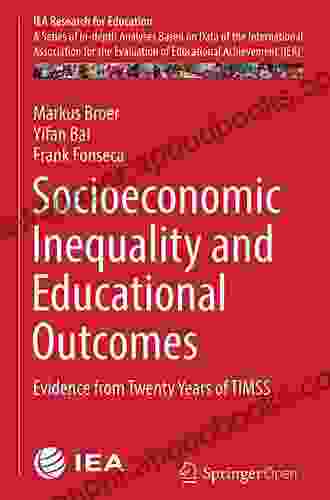US Foreign Policy in the Post-Cold War World: A Comprehensive Guide

The End of an Era: The Cold War's Impact
The fall of the Berlin Wall in 1989 marked a profound turning point in global politics, signaling the end of the Cold War and the bipolar world Free Download that had defined it. For the United States, the post-Cold War era presented both opportunities and challenges as it sought to navigate an increasingly complex and interconnected world.

4.8 out of 5
| Language | : | English |
| File size | : | 2449 KB |
| Text-to-Speech | : | Enabled |
| Screen Reader | : | Supported |
| Enhanced typesetting | : | Enabled |
| Word Wise | : | Enabled |
| Print length | : | 495 pages |
The Clinton Years: Multilateralism and Intervention
During the Clinton administration (1993-2001),US foreign policy was guided by principles of multilateralism and a belief in the importance of international institutions. The Clinton administration emphasized cooperation with allies and partners, engaging in multilateral efforts such as NATO and the United Nations to address global challenges.
However, the Clinton era also witnessed several notable instances of US military intervention, including the 1994 intervention in Haiti and the 1999 bombing campaign in Kosovo. These interventions reflected the Clinton administration's commitment to humanitarian principles and its willingness to use military force to protect US interests and promote democracy abroad.
The Bush Years: Unilateralism and the War on Terror
The 9/11 terrorist attacks on the United States in 2001 had a profound impact on US foreign policy. The Bush administration (2001-2009) adopted a more unilateralist approach, prioritizing US national security interests and pursuing a "War on Terror" against extremist groups.
The Bush administration implemented a number of aggressive policies, including the invasion of Afghanistan in 2001 and the invasion of Iraq in 2003. These interventions aimed to dismantle terrorist networks and prevent the spread of weapons of mass destruction, but they also sparked controversy and led to significant loss of life.
The Obama Years: The Return to Multilateralism
The Obama administration (2009-2017) sought to restore a more cooperative approach to US foreign policy. President Obama emphasized multilateralism, engaging with allies and partners on issues ranging from climate change to nuclear non-proliferation.
The Obama administration also pursued a more nuanced approach to counterterrorism, emphasizing diplomacy and local partnerships rather than large-scale military interventions. This approach was reflected in the 2011 intervention in Libya, which was authorized by the United Nations and aimed to protect civilians from the regime of Muammar Gaddafi.
The Trump Years: America First and Isolationism
The election of Donald Trump in 2016 marked a significant departure from previous US foreign policies. The Trump administration (2017-2021) adopted an "America First" agenda that prioritized US economic interests and reduced involvement in international affairs.
The Trump administration pursued a more isolationist approach, withdrawing from international agreements such as the Paris climate accord and the Iran nuclear deal. It also imposed tariffs on goods from China and other countries, sparking trade disputes and economic tensions.
The Biden Years: A Return to Engagement
The Biden administration (2021-present) has sought to restore a more active and engaged US foreign policy. President Biden has emphasized the importance of alliances and partnerships, rejoining international agreements such as the Paris climate accord and the Iran nuclear deal.
The Biden administration has also taken a more assertive approach to China, addressing concerns about economic coercion, human rights abuses, and military aggression. It has also played a key role in the international response to the COVID-19 pandemic and the war in Ukraine.
Key Challenges in the Post-Cold War Era
The post-Cold War era has presented US foreign policy with a number of ongoing challenges, including:
- The rise of China: China's growing economic and military power has created new challenges for US foreign policy. The Biden administration has identified China as a "strategic competitor" and is working to maintain US economic and military superiority in the Asia-Pacific region.
- Terrorism: Terrorism remains a significant threat to US interests and global security. The Biden administration is working to counter terrorism through diplomacy, military action, and cooperation with international partners.
- Nuclear proliferation: The spread of nuclear weapons poses a serious threat to global security. The Biden administration is working to prevent nuclear proliferation and strengthen international non-proliferation norms.
- Climate change: Climate change is a major challenge that requires global cooperation. The Biden administration has rejoined the Paris climate accord and is working to reduce greenhouse gas emissions and promote clean energy.
: Navigating a Complex World
US foreign policy in the post-Cold War era has been shaped by a complex and ever-changing world. From the challenges of multilateralism to the threats of terrorism and nuclear proliferation, the United States has faced a wide range of challenges in its efforts to promote peace, security, and prosperity at home and abroad.
As the United States looks to the future, it must continue to adapt its foreign policy to the evolving global landscape. By engaging with allies and partners, addressing emerging threats, and promoting cooperation on global challenges, the United States can continue to play a vital role in shaping the future of international affairs.
4.8 out of 5
| Language | : | English |
| File size | : | 2449 KB |
| Text-to-Speech | : | Enabled |
| Screen Reader | : | Supported |
| Enhanced typesetting | : | Enabled |
| Word Wise | : | Enabled |
| Print length | : | 495 pages |
Do you want to contribute by writing guest posts on this blog?
Please contact us and send us a resume of previous articles that you have written.
 Book
Book Novel
Novel Page
Page Chapter
Chapter Text
Text Story
Story Genre
Genre Reader
Reader Library
Library Paperback
Paperback E-book
E-book Magazine
Magazine Newspaper
Newspaper Paragraph
Paragraph Sentence
Sentence Bookmark
Bookmark Shelf
Shelf Glossary
Glossary Bibliography
Bibliography Foreword
Foreword Preface
Preface Synopsis
Synopsis Annotation
Annotation Footnote
Footnote Manuscript
Manuscript Scroll
Scroll Codex
Codex Tome
Tome Bestseller
Bestseller Classics
Classics Library card
Library card Narrative
Narrative Biography
Biography Autobiography
Autobiography Memoir
Memoir Reference
Reference Encyclopedia
Encyclopedia Gordon Edgar
Gordon Edgar Jim Aparo
Jim Aparo Robert A Naseef
Robert A Naseef Geraldine Helen Hartman
Geraldine Helen Hartman Gary A Baribeault
Gary A Baribeault Gregory Long
Gregory Long James Edward
James Edward Gerard Kilroy
Gerard Kilroy Greg Fallis
Greg Fallis Greg Rushford
Greg Rushford Kikuko Tsumura
Kikuko Tsumura Glenn Greenwald
Glenn Greenwald Graham Brooks
Graham Brooks Patrick Collier
Patrick Collier Tom Bradford
Tom Bradford Michael Ryan
Michael Ryan J Elle
J Elle Roddy Scheer
Roddy Scheer Miriam Hoffman
Miriam Hoffman Greg Nelson
Greg Nelson
Light bulbAdvertise smarter! Our strategic ad space ensures maximum exposure. Reserve your spot today!

 Emmett MitchellThe Complete Idiot's Guide to Shamanism: Unveiling the Ancient Secrets and...
Emmett MitchellThe Complete Idiot's Guide to Shamanism: Unveiling the Ancient Secrets and... Emilio CoxFollow ·11.5k
Emilio CoxFollow ·11.5k Henry David ThoreauFollow ·14.2k
Henry David ThoreauFollow ·14.2k Abe MitchellFollow ·15.1k
Abe MitchellFollow ·15.1k Colton CarterFollow ·17.3k
Colton CarterFollow ·17.3k Julio CortázarFollow ·15.6k
Julio CortázarFollow ·15.6k Donald WardFollow ·19.7k
Donald WardFollow ·19.7k Elmer PowellFollow ·14.7k
Elmer PowellFollow ·14.7k Neal WardFollow ·17.1k
Neal WardFollow ·17.1k

 Ken Follett
Ken FollettDiscover the Enchanting World of Classical Piano with "10...
A Symphony of Timeless...

 Cody Russell
Cody RussellTheo On The Ice Boston Bay Vikings: A Hockey Adventure...
Theo On The Ice...

 Nathaniel Hawthorne
Nathaniel HawthorneBach for Easy Guitar: Unleash the Genius of the Baroque...
Johann Sebastian Bach, the undisputed...

 Brenton Cox
Brenton CoxAfrican Recipes For Every Concern: Delicious,...
Embark on a Culinary Journey to the Heart of...

 Lawrence Bell
Lawrence BellEasy Guitar With Notes Tab: Your Ultimate Guide to...
Unlock the World...

 Brenton Cox
Brenton CoxCarter On The Ice: A Thrilling Sports Novel
Synopsis ...
4.8 out of 5
| Language | : | English |
| File size | : | 2449 KB |
| Text-to-Speech | : | Enabled |
| Screen Reader | : | Supported |
| Enhanced typesetting | : | Enabled |
| Word Wise | : | Enabled |
| Print length | : | 495 pages |










